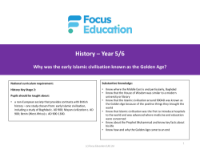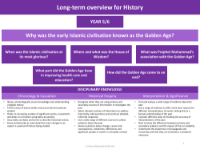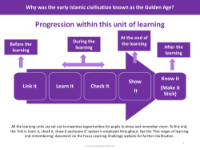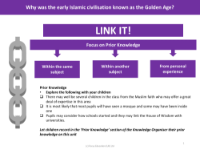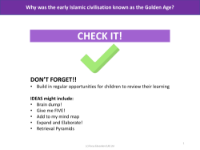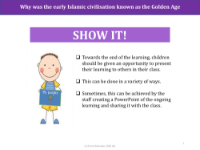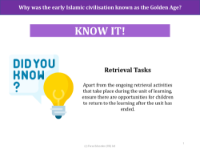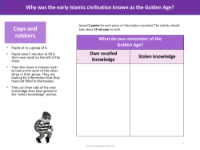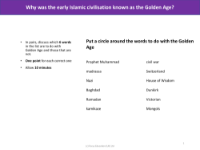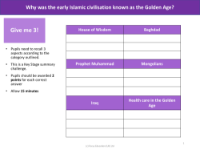Knowledge organiser - Islamic Civilisation - Year 5
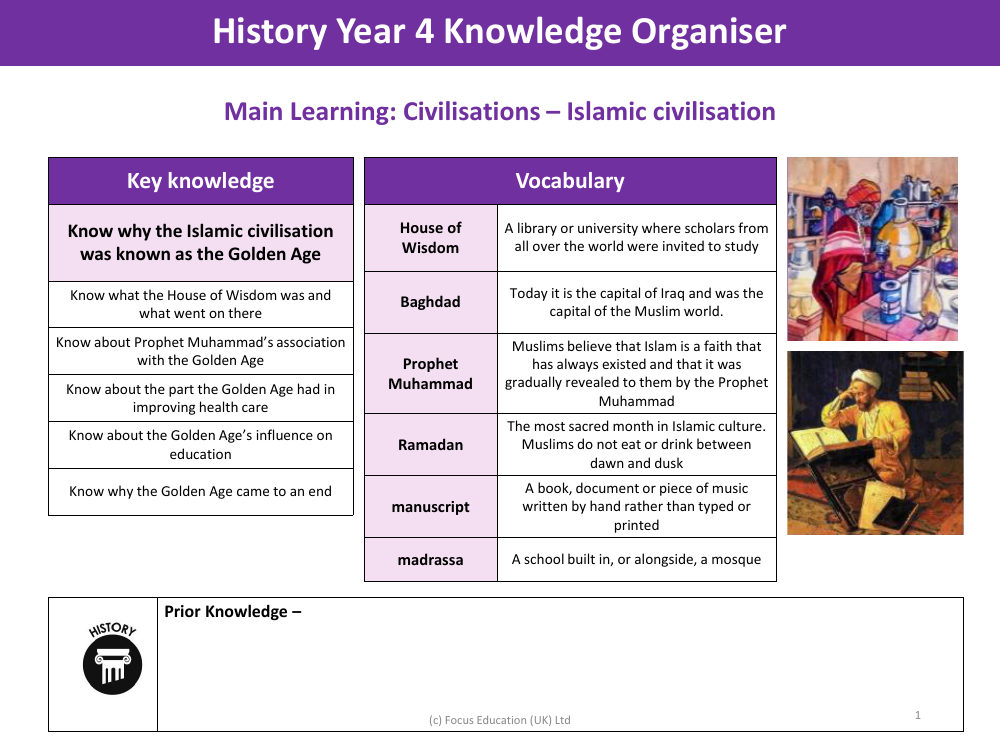
History Resource Description
The Year 5 curriculum on Islamic Civilisation delves into a historical period often referred to as the Golden Age, a time when the Muslim world experienced significant advancements in various fields of knowledge. Prior to this, students should be familiar with the basics of Islamic culture and key vocabulary such as the House of Wisdom, which was a renowned centre of learning in Baghdad, inviting scholars from across the globe to study. Baghdad, the present-day capital of Iraq, was also the heart of the Muslim world during this era. The teachings of Prophet Muhammad are central to understanding the development of Islam, which Muslims believe to be a faith that has always existed and was progressively revealed to humanity through him. Ramadan, the holiest month for Muslims, involves fasting from dawn to dusk, underscoring the importance of discipline and spirituality.
As part of their key knowledge, students will explore why the Islamic civilisation is celebrated as the Golden Age, recognising the House of Wisdom's role in fostering intellectual growth. They will learn about the connection between Prophet Muhammad and the Golden Age, especially in terms of the spread of knowledge and culture. The period's contributions to healthcare improvement will be another focal point, as will its influence on education, particularly through institutions like madrassas, which were schools often attached to mosques. Manuscripts, handwritten documents crucial for preserving knowledge before the advent of printing, are also discussed. Understanding why the Golden Age eventually came to an end is a vital aspect of this historical inquiry, helping students to appreciate the complexity and impermanence of civilisations.
